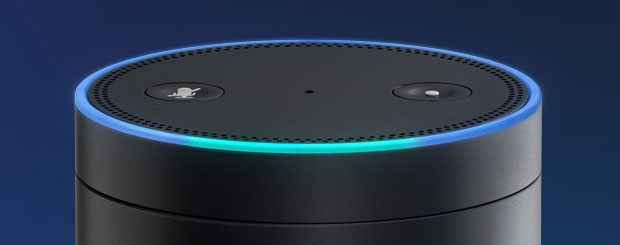Amazon on Tuesday introduced new functionality that enables its Alexa virtual assistant to send and receive SMS messages on devices running Android 5.0 or higher. Carrier charges may apply.
Alexa, the software that powers the Echo line of smart speakers, can play and send personalized messages from contacts for users who have set up voice profiles.
Users will hear a chime when they have a new SMS message, and see a yellow light ring on their Echo device. They’ll also be notified in the Alexa App.
The SMS feature isn’t available for iOS because Apple doesn’t share its messaging API with third parties, Amazon said.
The feature currently is available only in the United States.
Text-to-911, group messages, and MMS are not supported.
Texting With Alexa
To use the new SMS feature, users first have to sign up for Alexa Calling & Messaging in the Alexa app.
To send an SMS message through an Echo device, go to “Conversations,” select “Contacts,” then “My Profile.” Enable “Send an SMS,” accept the Android OS permission, and then tell Alexa to send an SMS to the recipient.
Users can disable the Send SMS feature through their contact card in the Alexa app.
Making Nice With Android
“Amazon, who failed with smartphones, is trying to move their digital assistant into the communications space,” observed Rob Enderle, principal analyst at the Enderle Group.
“This is a long-term strategy, and it appears they’re executing the old ’embrace, extend, extinguish’ strategy Microsoft executed to displace Lotus 1-2-3,” he told TechNewsWorld.
“This is the embrace stage,” Enderle said. “They anticipate people increasingly using their Echos to communicate and control things, rendering smartphones redundant.”
Teaming up with Android is a competitive move, said Cindy Zhou, principal analyst at Constellation Research.
Competition in the smart home voice-enabled device battle “is increasing with Google Home, Apple HomePod, and Microsoft Cortana Harman Kardon,” she told TechNewsWorld.
“Google Home devices enable text messaging to phones,” Zhou noted, so “adding this feature helps Amazon compete.”
Sound system maker Harman Kardon offers Invoke, an intelligent speaker that uses Microsoft’s Cortana virtual assistant.
It’s possible that Amazon has an even larger goal, Enderle suggested.
“They want to be the only device you depend on to communicate,” he said. “The more success Amazon has here, the more folks will question their need for a smartphone.”
Like a chess fork, the tie-in with Google will put Amazon in a win-win situation, Enderle noted. Even if its push into SMS doesn’t displace smartphones, the move will strengthen its connections to its customers.
“Communication is engagement, and the firm that owns that change owns a trusted link into buying behavior,” Enderle pointed out. “This is critical to regaining and growing its customer base.”
Apple Overshadowed
Apple’s HomePod is no threat, and the lack of SMS capability for iOS is no problem for Alexa, Enderle remarked.
“HomePod has a number of problems, not the least of which is excessive cost and being significantly behind Amazon,” he explained. “Apple really isn’t taking this threat seriously, which may allow Amazon to do to it what it did to BlackBerry, Palm and Microsoft.”
Alexa SMS Issues
Alexa’s new SMS capability is being over hyped, contended Michael Jude, research manager at Stratecast/Frost & Sullivan.
“Accessing the feature for most will be more trouble than it’s worth, since Alexa interactions are still kind of clunky,” he told TechNewsWorld.
Alexa “works for simple instructions — but for more complicated interactions like this, most people will not bother,” Jude predicted. “It’s far easier simply to use the SMS functionality on the smartphone.”
The SMS feature “will add to the perceived utility of the Amazon offering, but will ultimately be of limited use unless it’s improved over time,” he said. “The Jude rule is, people evaluate a purchase on the basis of all the features they get, but then only use 10 percent of them.”























































